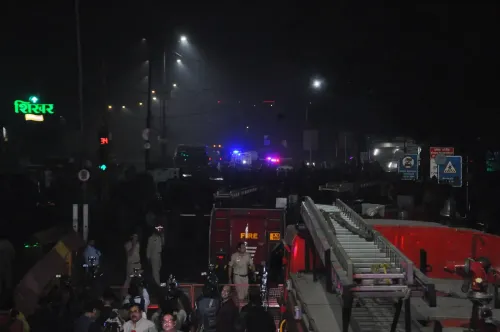Why is the Anti-Forced Conversion Law Essential for Protecting Vulnerable Communities?

Synopsis
Key Takeaways
- Rajasthan Prohibition of Unlawful Conversion of Religion Bill aims to protect vulnerable groups.
- Severe penalties are outlined for forced and fraudulent conversions.
- The bill requires advance notice for voluntary conversions.
- It reflects a broader trend of protective legislation across various states.
- Minister Bedham emphasizes the importance of social harmony.
Jaipur, Sep 9 (NationPress) The Rajasthan Legislative Assembly has successfully approved the Rajasthan Prohibition of Unlawful Conversion of Religion Bill, 2025 through a voice vote.
In defense of this significant legislation, Minister of State for Home Jawahar Singh Bedham emphasized that the bill is essential for promoting social harmony and protecting the weak members of our society.
He pointed out that while Article 25 of the Constitution ensures freedom of religion, it does not permit conversions that occur through deceit, fear, fraud, or inducement.
The bill establishes severe penalties for forced or fraudulent conversions:
7-14 years of imprisonment and a fine of Rs 5 lakh for deceitful conversions.
10-20 years of imprisonment and a minimum fine of Rs 10 lakh if the victim belongs to a woman, minor, Scheduled Caste, Scheduled Tribe, or Divyaangjan.
20 years to life imprisonment and a fine of Rs 25 lakh for mass conversions.
10-20 years of rigorous imprisonment and a fine of Rs 20 lakh for receiving foreign or illegal financial support for conversion efforts.
20 years to life imprisonment and a fine of Rs 30 lakh for conversions conducted through threats, deceitful marriages, or trafficking.
Repeat offenders can expect 20 years to life imprisonment and a fine of Rs 50 lakh.
The bill also permits the confiscation of properties involved in illegal conversions and declares that marriages conducted solely for conversion purposes will be annulled by a competent court. Individuals converting voluntarily must notify the District Magistrate 90 days in advance; failure to comply will result in 7-10 years of imprisonment and a fine of Rs 3 lakh.
Religious leaders involved in conversions must also provide 60 days' notice, or they may face 10-14 years of imprisonment and a fine of Rs 5 lakh. Bedham noted that Dr. B.R. Ambedkar emphasized that religion should be a personal matter, yet its misuse to instigate social unrest is perilous.
He referenced a statement from Prime Minister Narendra Modi, asserting that while every citizen enjoys the right to religious freedom, no one has the right to convert others through coercion or inducement.
Bedham highlighted that vulnerable groups - including Scheduled Castes, Scheduled Tribes, women, and the economically disadvantaged - are frequently the primary targets of these activities.
The Minister pointed out that both the Supreme Court and several High Courts have consistently ruled that forced conversion is illegal and poses a significant threat to society. He remarked that forced conversion does not constitute religion propagation under Article 25 but rather infringes upon fundamental rights. Additionally, numerous states such as Arunachal Pradesh (1978), Andhra Pradesh (2007), Uttarakhand (2018), Himachal Pradesh (2019), Uttar Pradesh (2021), Karnataka (2021), and Haryana (2022) have implemented similar legislation. Rajasthan itself had previously introduced an anti-conversion law in 2008.
“Under the guidance of Chief Minister Bhajan Lal Sharma, Rajasthan has now established a more robust law aimed at curbing forced conversions,” Bedham asserted.
He concluded by stating that the government has been taking decisive actions against such occurrences in districts like Alwar and Banswara, ensuring prompt arrests and legal repercussions for offenders.









